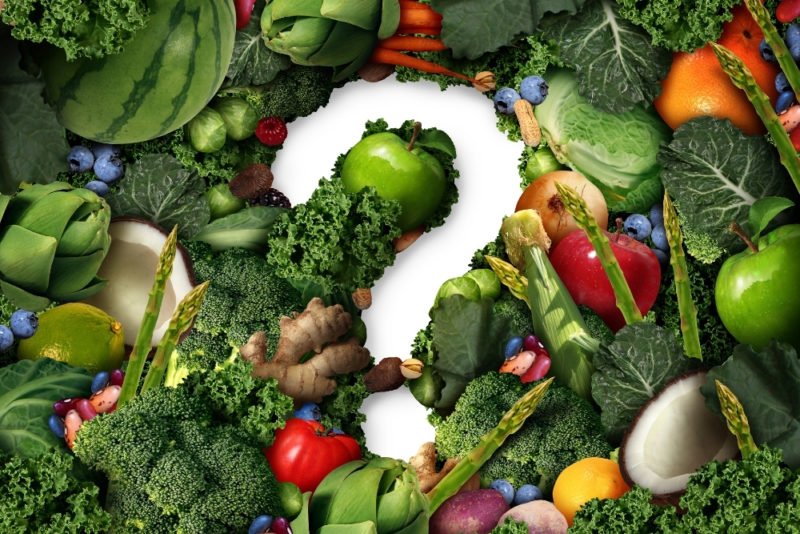
Intuitive eating becoming increasingly popular over the past several years, even thought it’s far from new. The term “intuitive eating” was formally introduced when California registered dietitians Evelyn Tribole, MS, RD, and Elyse Resch, MS, RD, wrote the first edition of the book “Intuitive Eating” in 1995, and the fourth edition was released in 2020.
Intuitive eating has 10 principles:
- Reject the diet mentality
- Honor your hunger
- Make peace with food
- Challenge the food police
- Discover the satisfaction factor
- Feel your fullness
- Cope with your emotions with kindness
- Respect your body
- Movement—feel the difference
- Honor your hunger with gentle nutrition
As with many ideas that suddenly start to grow in popularity, the central tenants of intuitive eating can be easily misinterpreted, especially as information spreads on social media. Many people have “heard of” Intuitive Eating but really don’t know much about it. This means that people who are starting to practice Intuitive Eating may get some interesting comments and questions from family, friends, co-workers, the mail carrier (OK maybe not then unless you are REALLY chatty with your mail carrier).
Here are five of those questions/comments you might hear (and want to be prepared for) if you are a newbie intuitive eater.

“Aren’t you worried about what ‘giving up’ will do to your health?”
Part of making peace with food is having unconditional permission to eat, something that’s frequently misunderstood by those who don’t fully understand, or haven’t experienced, Intuitive Eating. The idea of unconditional permission to eat can look like a food free-for-all, and it can even feel that way to people who are just dipping their toes into intuitive eating waters.
But Intuitive Eating is not a free-for-all. It’s not about eating whatever you want, however much you want, whenever you want. That’s because Intuitive Eating pairs that unconditional permission with attunement to the physical sensations that arise from within the body, which includes states such as hunger and fullness, as well as the physical sensations that accompany emotions.
Intuitive eaters allow themselves to eat when they’re hungry and stop when they are comfortably full most of the time — sometimes you simply need to eat when you have a break between meetings, even if you aren’t hungry yet, and some meals are so rare and delicious that you may make the conscious, intentional choice to enjoy it a bit longer — and they develop an array of emotional coping tools so that food isn’t their default when life feels tough.
That said, it’s not uncommon to have a “honeymoon period” in which you feel like you’re eating nothing but cookies. In fact, for many people — especially if they have a long history of restrictive dieting or otherwise had a lot of food rules to let go of — feeling a little out of control is a normal part of the process.
A metaphor frequently used by Intuitive Eating experts is the pendulum swing. Rigid or restrictive eating swings the pendulum way to the right. When you release yourself from those rules, the pendulum often swings just as far to the left. But as you practice intuitive eating, allowing yourself permission to eat all foods while also listening to what your body wants, the pendulum will settle somewhere in the middle.

“You’re eating a salad? I thought you were doing Intuitive Eating?”
Part of the “giving up” myth is the idea that if you choose to eat “healthy” foods — say a salad instead of a burger — you’re not doing intuitive eating “right,” and that you’re actually stuck in the diet mentality. But keep in mind that “gentle nutrition” is one of the principles, and that intuitive eaters don’t have to justify their food preferences or needs.
As Evelyn Tribole says: “You have the freedom to choose a bowl of ice cream just as much as freshly roasted vegetables.”
I often get this sort of question from my clients, or more along the lines of, “I wanted broccoli the other night…is that a sign I still have diet mindset, or did I want broccoli intuitively?” A good litmus test is to ask yourself whether you desire “healthy” food from a place of self-care or self-control.
- If eating your veggies makes you feel good, keeps your digestion running smoothly, looks pretty on the plate…and heck, maybe you LIKE vegetables, then that’s all self-care.
- If you didn’t like how you looked in the mirror that morning, feel guilty for not eating vegetables at lunch, or feel like you’re bad if you DON’T eat vegetables, then that desire for broccoli is likely born from self-control. That’s a sign there is still mindset work to be done. And that’s OK…it’s part of the process.
Just to add another story, one of my clients was making peace with bagels, which had previously been a big “no-no” food for her. Then one day, she was at the grocery store, and was about to pick up more bagels, when she realized she was tired of bagels, and what she really wanted was a salad.
(She did do a bit of the “is this diet mindset or Intuitive Eating mindset?” dance in her head, and realized that she genuinely craved salad, and that there was zero guilt involved.)

“Oh, yeah, I tried Intuitive Eating…and it didn’t work.”
When intuitive eating turns out to not be so intuitive, it’s easy to think “this isn’t working.” But like any new skill, intuitive eating takes time — and for most people, intuitive eating feels very new, indeed. In other words, it’s easy and complex all at the same time.
While we’re borne with the ability to eat intuitively, diet culture can get us off track and make it challenging to reclaim that eating birthright.
Here’s another important point: Intuitive Eating is a practice. It’s not enough to just read the book and understand it intellectually. You have to practice the skills and accept that it takes time to feel “intuitive.”
Also frustrating for many people is that intuitive eating is not black and white — it’s all shades of gray. That can feel uncomfortable when you have a long history of following eating rules.
Intuitive eating is a journey best approached with curiosity and a non-judgmental mindset — what might look like a “mistake” is valuable information, and an opportunity to learn something new about yourself.

“Isn’t that a way to lose weight without actually dieting?”
Intuitive eating is often sold as a “non-diet” way to lose weight by diet companies and healthcare organizations and providers that don’t really understand Intuitive Eating. In fact, two of the best-known principles — “honor your hunger” and “feel your fullness” — are frequently co-opted as a sort of “hunger-fullness diet.”
But Intuitive Eating is not about weight loss, it’s about healing your relationship with food, mind and body. Putting the focus on weight loss interferes with the process of tuning in to your body’s internal cues. Instead, you end up continuing to focus on external cues — the scale, the calories, the macros. It keeps you outside your body, when you need to be inside your body.
The fact is that how someone’s body responds to eating intuitively depends largely on what their relationship with food was like before coming to intuitive eating, and whether eating behaviors like restriction, binging — or both — pushed their weight above or below their body’s preferred range.
Different bodies will have different outcomes. Some bodies will lose weight on intuitive eating, some bodies will gain weight, some will stay the same. Over time, as someone becomes a skilled intuitive eater, their body weight will generally settle in their body’s preferred range…which may or may not be the range they kind of hoped for, consciously or unconsciously.
This is why it’s important to explore the reasons why you desire weight loss without striving for weight loss to help avoid turning intuitive eating into the aforementioned “hunger-fullness diet.”
Yes, “honor your hunger” and “feel your fullness” are two of the intuitive eating principles, but turning those gentle guidelines into absolute rules ignores the very first principle of “reject the diet mentality.” Intuitive eating is about stepping away from dieting and forming a truly balanced and peaceful relationship with food.

“I could never trust myself to do that.”
When you’ve been taught for years – or decades – that you can’t trust your body, that you need to control everything you eat and drink based on external rules, and monitor your body’s size and shape with scales, tape measures and calipers,* there’s a lot of unlearning that has to happen before you can make peace with your body. That includes listening to – and trusting – the abundant wisdom your body has to share with you.
* (Oh, never used calipers at home to measure your body fat? I am truly happy for you, because I did during one frenzied dieting summer, and deeply regret it.)
Many people who describe themselves as compulsive, emotional, out-of-control eaters find that once they “challenge the food police” and “make peace with food” by letting go of rules and judgments about “good” and “bad” foods (and explore how to meet their emotional needs without necessarily turning to food) most of their emotional eating ends.
The bottom line is that you CAN trust yourself to eat intuitively. However, it takes time, and patience, and practice, and curiosity, and self-compassion.
This post contains Amazon Affiliate links. As an Amazon Associate I earn from qualifying purchases.
Disclaimer: All information provided here is of a general nature and is furnished only for educational purposes. This information is not to be taken as medical or other health advice pertaining to an individual’s specific health or medical condition. You agree that the use of this information is at your own risk.
Hi, I’m Carrie Dennett, MPH, RDN, a weight-inclusive registered dietitian, nutrition therapist and body image counselor. I offer compassionate, individualized care for adults of all ages, shapes, sizes and genders who want to break free from eating disorders, disordered eating or chronic dieting. If you need to learn how to manage IBS symptoms with food, or improve your nutrition and lifestyle habits to help manage a current health concern or simply support your overall health and well-being, I help people with that, too.
Need 1-on-1 help for your nutrition, eating, or body image concerns? Schedule a free 20-minute Discovery Call to talk about how I can help you and explore if we’re a good fit! I’m in-network with Regence BCBS, FirstChoice Health and Providence Health Plan, and can bill Blue Cross and/or Blue Shield insurances in many states. If I don’t take your insurance, I can help you seek reimbursement on your own. To learn more, explore my insurance and services areas page.
 Print This Post
Print This Post






